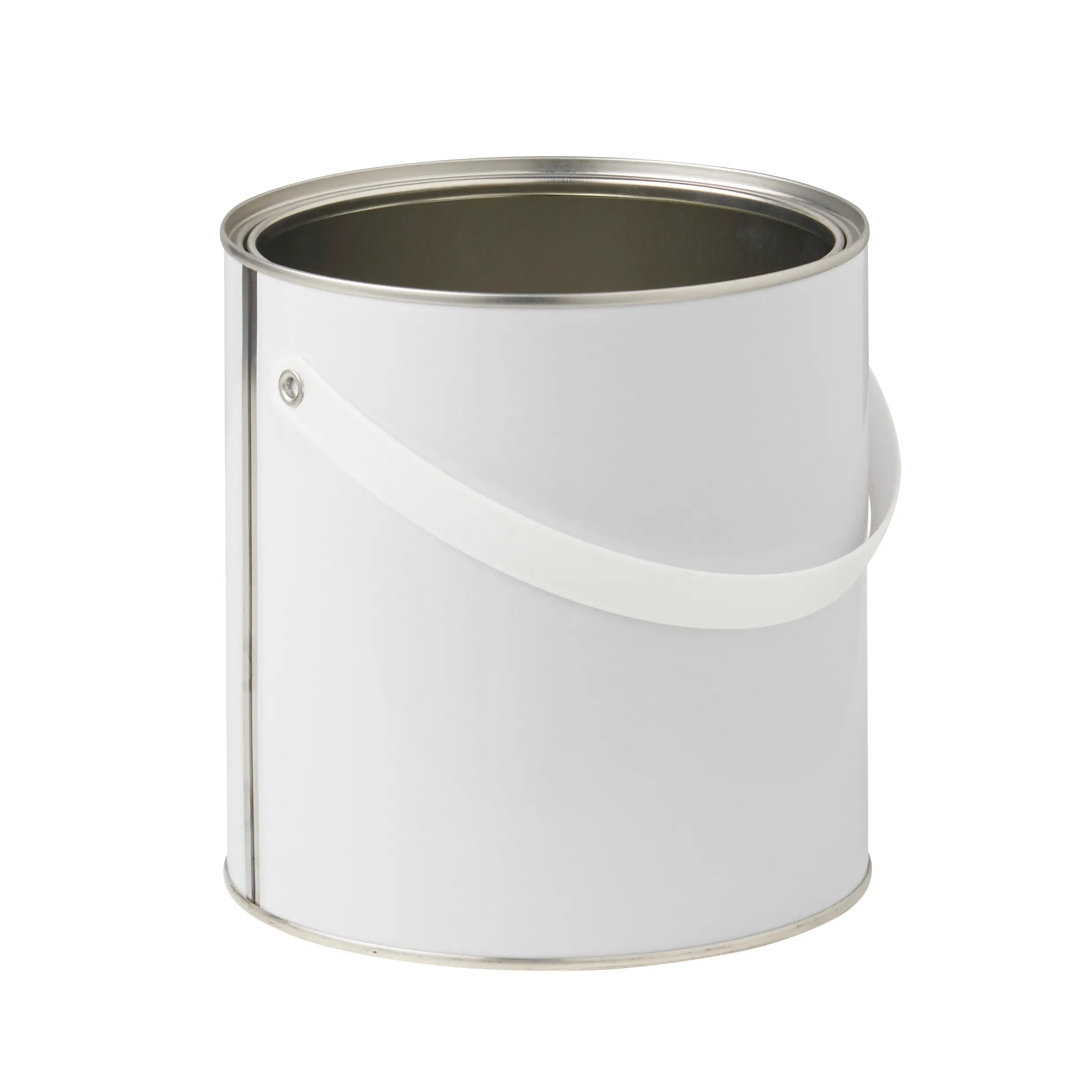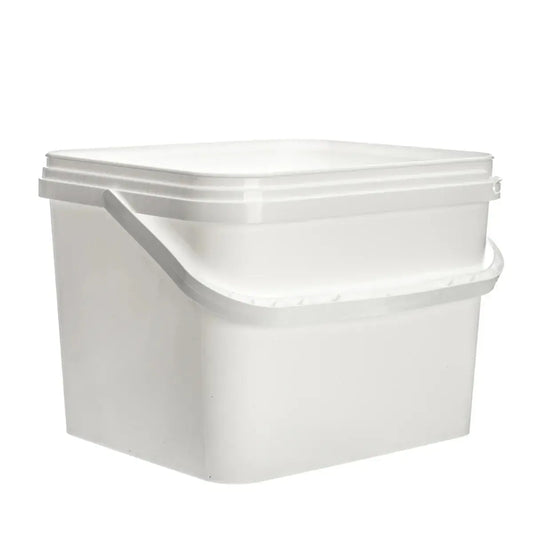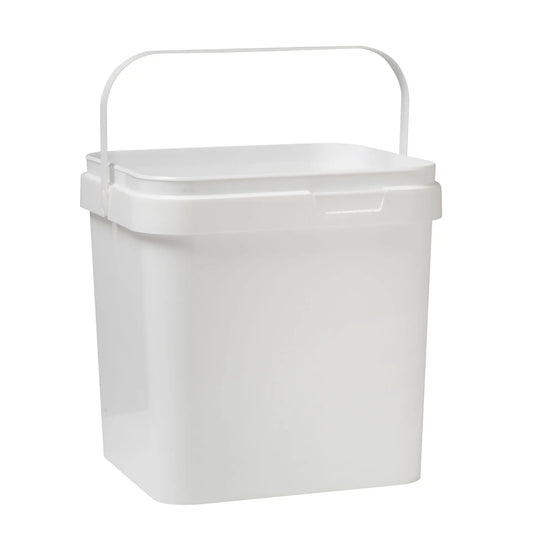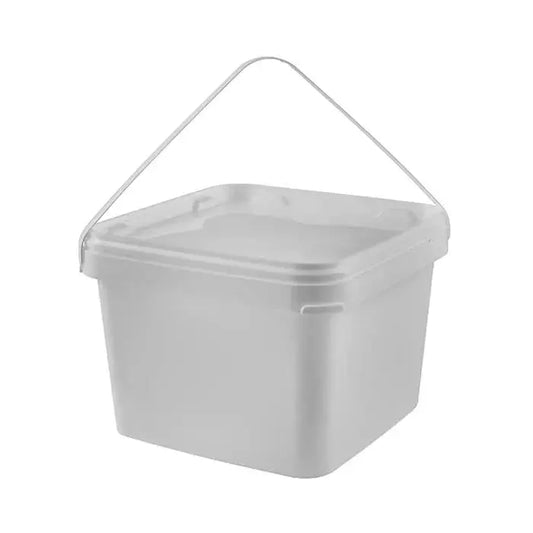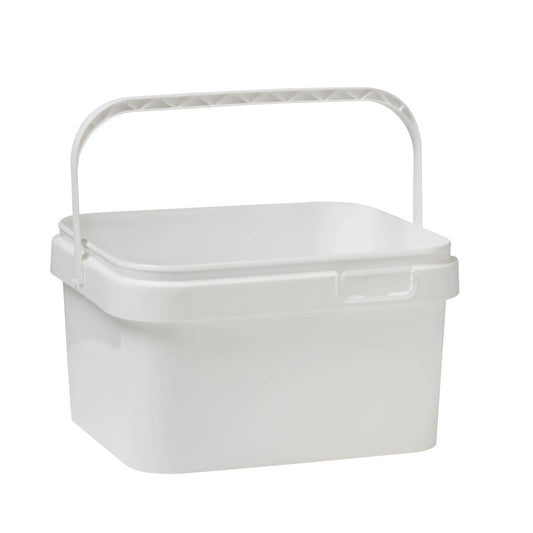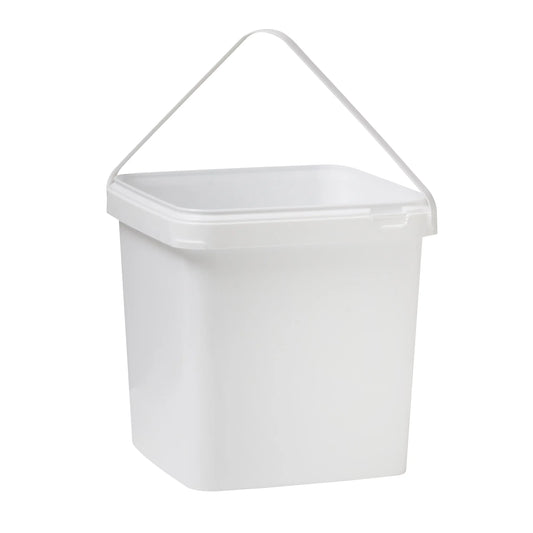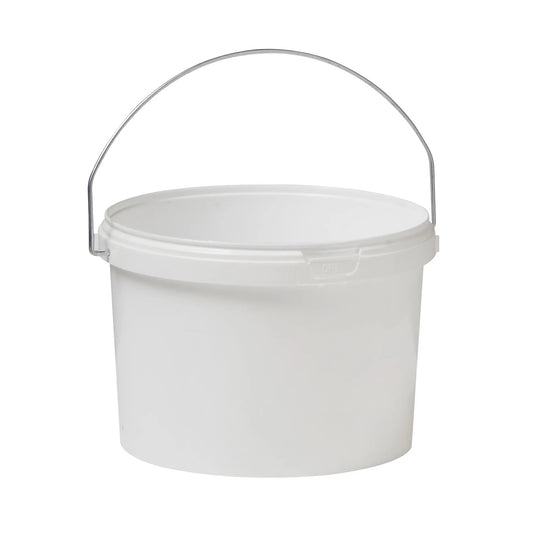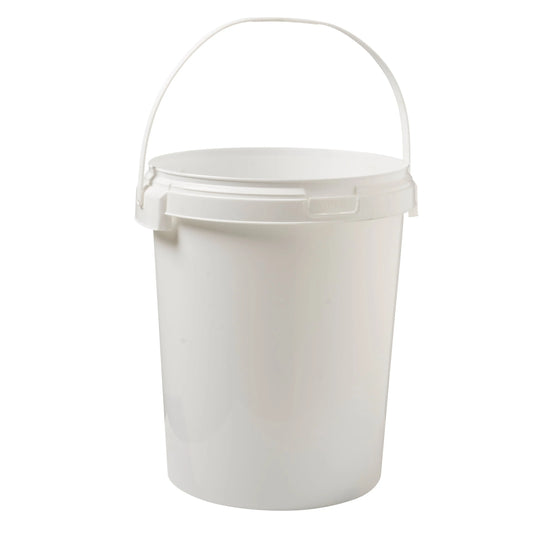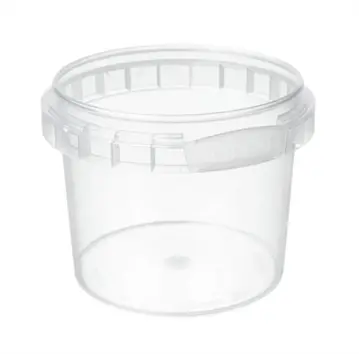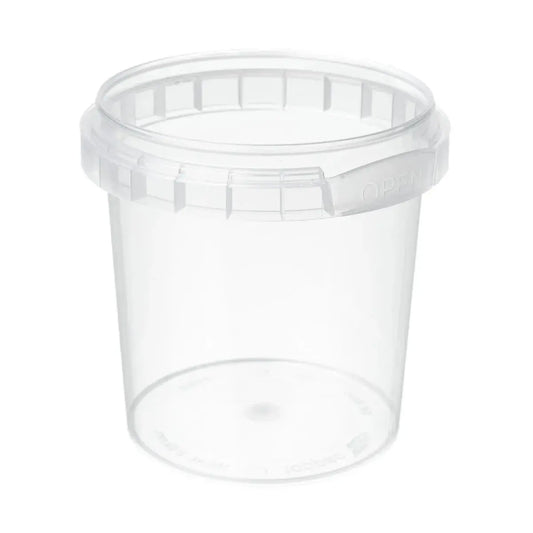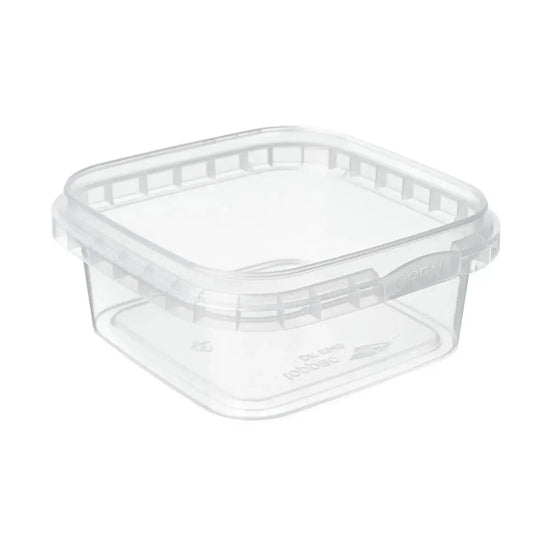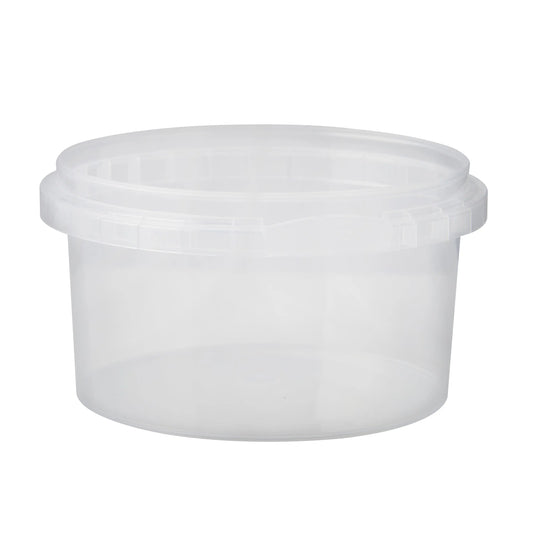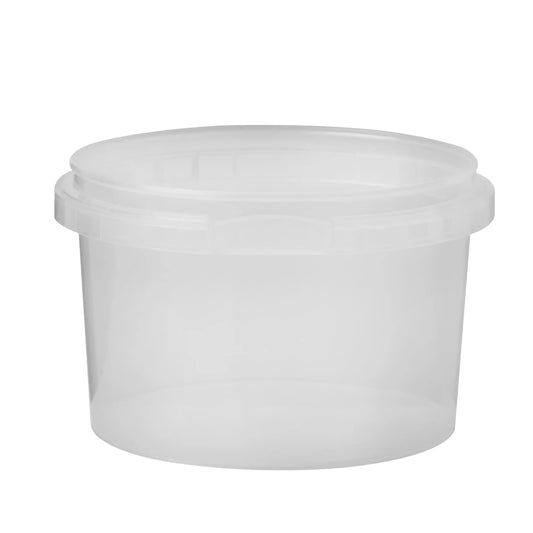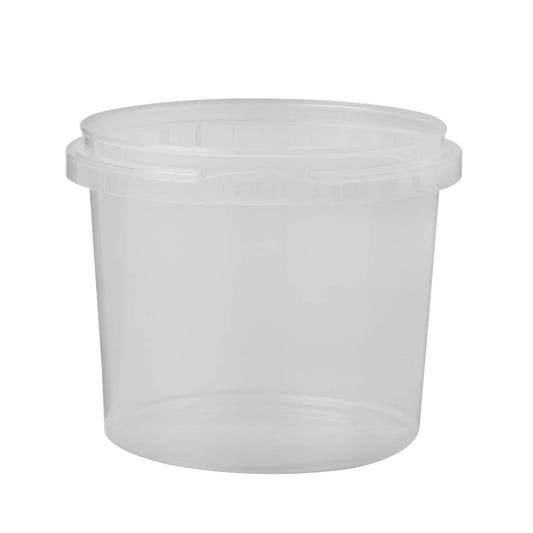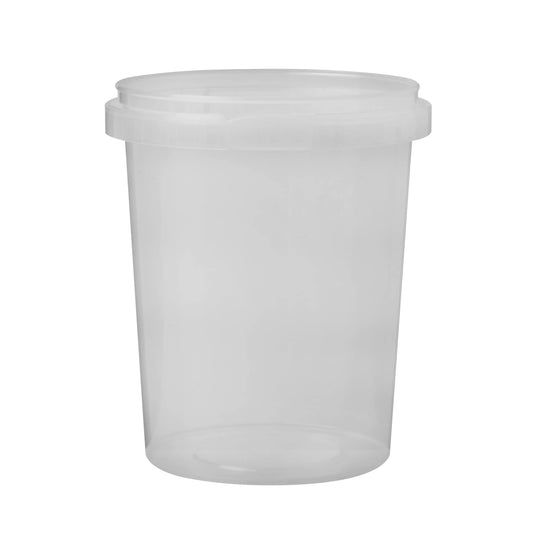Two things are essential for commercial kitchens - hygiene and efficiency, so any product, process or piece of equipment must tick both boxes. The humble plastic bucket does. Buckets are versatile, cleanable, light and (most importantly!) suitable for food, which is why it's the commercial kitchen container of choice for many food and beverage businesses.
Plastic buckets are indispensable across a wide range of kitchen processes, supporting everything from food storage and organisation to food waste management and cleaning. Food grade buckets and tubs are available in such a wide range of sizes and shapes that whatever the kitchen demands there'll be a plastic container to suit.

Practicality and hygiene are of paramount importance in commercial kitchens
Food Storage and Organisation
Organisation is essential for delivering efficiency and hygiene in the fast-paced environment of a commercial kitchen. Plastic tubs and buckets are ideal for storing the wide variety of foods a working kitchen needs. Every ingredient has a shelf life, and buckets make it easy to keep ingredients safe and separate until they're needed.
Whether stored in a fridge, a freezer or on a shelf consumables must be kept fresh, easy to find and safe from contamination. Plastic food grade buckets and tubs are the ideal food storage containers to do this for several reasons.
The smooth surface makes plastic buckets easy to clean, and disinfect, which is essential for food hygiene. They are made from polypropylene plastic (PP), which is impervious and puncture-resistant, protecting the contents from air, moisture and outside contaminants. Food grade buckets are the practical choice because they are lightweight, affordable and can be repeatedly opened and closed, which is ideal for ingredients made in bulk that are used repeatedly, like sauces or marinades.
Plastic tubs and buckets come in a wide variety of sizes, allowing kitchen staff to categorise and store items systematically. Each ingredient can have a designated container, from flour and sugar to diced vegetables and herbs, making it easy to locate and access during busy service hours. This organised approach minimises the time spent searching for ingredients, thereby optimising productivity and reducing the likelihood of errors in food preparation.
However, not all plastic buckets are the same and it's important to check they comply with FSA regulations. Containers must be marked with the wine glass and fork logo showing they are suitable for food use. Frozen goods must be kept in freezer-safe containers because some plastics can become brittle and compromised when stored in cold conditions. Look for the Freezer safe logo when storing frozen goods.

Frozen food should be stored in containers that are marked with the snowflake logo
It's also important to check food containers are BPA-free. Bisphenol-A is a chemical found in some plastics that potentially harms human health. The manufacturer or packaging supplier will be able to confirm which side of the BPA fence your packaging sits on.
Other packaging properties to look for are whether it is dishwasher-safe, microwave-safe or suitable for hot-filling. Choosing the right packaging for the job is essential for keeping workers safe and food fit for human consumption.
Food Tubs & Buckets for the Food Industry
Invopak stocks food-grade, BPA-free, food grade plastic buckets and tubs in white and clear options in a huge range of sizes. These are ideal commercial kitchen containers and excellent containers for the wider food and beverage industry. Please find a small selection below or view the full range below.
Food Safety Management
Food safety management dovetails with food hygiene and food standards regulations. These regulations are designed to keep consumers safe by ensuring food is fit for human consumption. A key part of this is minimising the three biggest risks to food safety - microbiological, chemical and physical hazards.
Microbiological or bacterial contamination is a risk when foods are not correctly stored. Bacteria thrive in a warm damp kitchen environment, so it's important to keep food in sealed containers and refrigerated or frozen as soon as possible. Items that are used regularly should be put back in the fridge between uses and use-by dates should be strictly adhered to to minimise the risk.
Chemical contamination happens when food comes into contact with harmful chemicals. This is why it's important to make sure cleaning products or pest control chemicals are clearly marked, used correctly and stored separately from food preparation areas.
Physical contamination is when any foreign object gets into food, such as broken glass, hair or broken packaging. Wearing the correct clothing in the kitchen, removing packaging carefully and using lidded containers helps to keep ingredients safe. Strong, sealable containers also ensure pests can not contaminate food, which is a particular risk to dried goods storage such as flour and pulses, that will not be refrigerated or frozen.
Food grade plastic buckets are a useful part of any Food Safety Management System (FSMS), not only can they help minimise the three contamination risks, but they also facilitate efficient ingredient management. Foods can be labelled and kept separately which is useful for stock control and adhering to use-by dates.

Any containers used for storing food, including buckets should be marked with the food grade logo
Waste Management and Recycling
All businesses must dispose of waste securely and properly. Waste must not be a source of contamination, either by touching food prep areas or attracting pests, which is why food waste must be put in designated bins. Fats, oils and grease (FOG) must be disposed of correctly, and sink strainers should be used to stop them clogging the drainage network. It's also important to remove food waste and other rubbish from food areas immediately to prevent attracting pests.
Choosing the right food grade container for the job helps prevent food waste leaks. The Food Standards Agency (FSA) guidelines state that food waste containers must be;
- Sealable.
- Solid and strong.
- Kept in sound condition.
- Easy to clean and disinfect.
Plastic buckets are ideal for food waste management because they are closable, sturdy, available in sizes up to 30 litres, and easy to clean. They are also useful for sorting other types of recyclable packaging waste, such as cardboard, paper and metal cans. The right food grade bucket can support sustainability in the kitchen in other ways too.
Plastic buckets are ideal for collecting kitchen waste ready for composting, even domestic kitchens can benefit from using a food caddy to collect food scraps. Buckets are lightweight and have a built-in- handle making it quick and easy to take food waste from kitchen to compost heap. Turning food scraps into compost adds vital nutrients to the soil, which then helps more food to grow, helping kitchens minimise waste and maximise taste!
Sustainability in the food industry is gaining traction for businesses and customers alike. The Sustainable Restaurant Association was founded in 2008 to promote sustainability across the hospitality sector, and recycling food waste is one of the cornerstones of ecological kitchen practice.

Field to Fork to Field - Turning food waste into compost keeps nutrients in the food cycle instead of landfill.
Cleaning and Sanitisation
Food safety and hygiene are essential for preventing food poisoning. It's useful to remember the 4 c's of food hygiene; Cleaning, Cooking, Chilling and Cross-contamination. It's no surprise that cleaning is the first C on the list. A clean kitchen keeps bacteria, viruses and pests at bay and brings efficiency to the kitchen too.
Regularly cleaning prevents oil and grease build-up, helping to minimise fire risks. Making sure the space is clean and tidy is important for preventing slips and trips, particularly in a hectic kitchen.
Buckets are useful for keeping kitchens clean. They can be used for mixing disinfectants, cleaning buckets and soaking utensils. However the buckets are used the contents must be labelled and kept separate from the food area.
Bulk Ingredient Handling
Commercial kitchens process a vast amount of food each day, so ingredients are ordered in bulk. Food grade plastic buckets help commercial kitchens manage these bulk orders effectively. Ingredients can be decanted into smaller buckets for more convenient storage, keeping the contents safe until they're needed.
Buckets are also ideal for storing batches of sauces or soups. Food can be made ahead of service and then kept in the fridge or freezer until required, helping kitchens manage staff time effectively.
The largest food grade bucket is 30 litres, but sometimes commercial kitchens need to operate in even larger quantities, this is where plastic drums and IBCs come in. Blue barrels are available from 30 litres to 220 litres. Barrels are often used by bakeries for flour storage and are ideal for other dried goods such as grains, pulses and cereals.
IBC Tanks are the ultimate bulk food storage container and can typically hold 1000 litres. They can be used to store large quantities of syrups, oils and liquids. IBCs usually come with a tap, making it easy to decant the contents too.
Plastic containers and buckets in particular help commercial kitchens operate efficiently in so many ways, from ingredient handling to cleaning duties. It's safe to say that wherever there's a commercial kitchen a plastic bucket won't be far away!
Invopak - Your Food Packaging Partner
Invopak has been supplying packaging to the food industry for over fifty years. Whether you need a small plastic tub for sauces and dips or a 10 litre bucket for curry sauce and gravy we'll have a food grade bucket that fits. We're also BRC Global Certified for storage and distribution, so you can buy from us with confidence. Click the button below to see our full range or get in touch today if you have any questions, our team are here to help.
